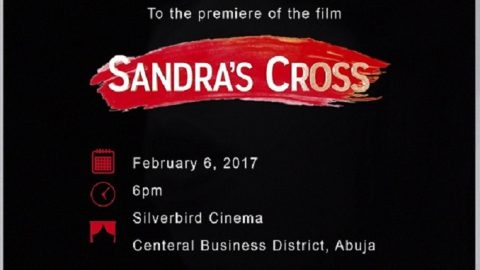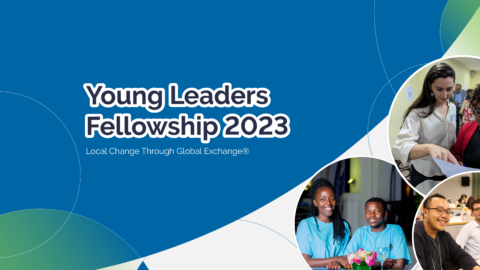About two months ago, the National Universities Commission (NUC) Executive Secretary, Professor Julius Okojie mentioned that 70 additional universities have been added to the existing number we have had since 2002. It puts the numbers of approved universities in the country to about 123. Of this lot, about 81 of them are federal and state owned with about 42 being private universities. This is a hard list to come by hence the prefix ‘about’ that always precedes the figure. NUC also has a new burden of clamping down on illegal universities operating solely to fleece unsuspecting students and their guardians. This would have been a whole lot easier with a fully functional and regularly updated website that hints at new approvals, their curricula, contact details and academic calendar or a simple link to the official website of the school. But then, even as I write this the website of universities regulator – the NUC with the Uniform Resource Locator, URL at www.nuc.edu.ng is down. It is not a befitting example that should come from the stable of the NUC which is the sole accreditation body that enforces uniform standard and sets admissions capacity of every university in Nigeria; especially when it is possible to setup an uptime monitoring service to ensure awareness of downtimes. The quality of a university’s website should be one of the yardsticks NUC uses in assessing the viability of a university especially since there is a Webometrics ranking of world universities.
All over the world, curricula are developed with an eye for the emerging and new culture in society. It justifies why the NUC is rightly pushing for entrepreneurial studies in universities given the reality that there is a job famine despite the growing population of graduates. The time is ripe for the NUC’s Labour Market Observatory Project (LMOP) to also catch the growing trend of dependence on new media in its drag net and filter it for inclusion in the curriculum for universities.
The Webometrics ranking of universities is today celebrated by universities and institutions of higher learning that rank well on it. Published by a Madrid based research group called Cybermetric lab, the ranking uses multiple indicators that considers volume of web contents, the visibility of this which is majorly enhanced by Search Engine Optimisation and the impact of these publications founded on citations they receive from external sources. And it considers about 12,000 universities across the globe while also breaking down the result on a continent basis. Looked at on the surface, the conditions are easy to meet but really they are not. The July, 2013 edition of Webometrics had Obafemi Awolowo University, Ile-Ife ranking 1st in Nigeria even though it was 8th in Africa and 1,113th in the world. Following closely was Auchi Polytechnic which was 2nd in Nigeria, ahead of the University of Ibadan and the University of Lagos. Auchi was also 23rd in the Africa and 2,106th in the world. Upon meeting the demands of ASUU, the Federal Government can begin to use these global ratings to task Universities and have it improve the country’s image. South Africa which has six universities ahead of Nigeria’s OAU in the ranking allocated 25.8% of its budget to education in 2012 as against Nigeria’s 8.4% in 2012. Universities in turn can begin to encourage independent thoughts from students by supporting them to set up blogs and other new media outlets to reflect and capture their learning progress. It will inevitably rub off on Nigerian Universities ranking.
It’s harmless to think it is high time that the curriculum of universities began to reflect the new market demand for digital media specialists. The dynamics of social media puts it in the mould of a course like Accountancy which no decent organisation can do without. A degree programme in it will allow for the creation and manipulation of new media content for new communication and media technologies. The demand for skills and competence in these areas is strong and expanding and we are just at the threshold because the traditional media influence still holds.
For anyone wanting to organise an event today, it’s only logical to still place adverts on newspaper pages but there’s also the need the obvious subtleties of making available details for such events on social media space and offer pre-event and post-event publicity using social influencers on various social network channels. Such degree programme irrespective of whether it is called BSc. Social Media or BSc. Digital Media and Society, or New Media will explore the interaction between society and technology; it will look at the use of images, videos and podcasts to enhance social features. It would look at the business world and forecast the technology in new media for tomorrow’s users. It would explore content management for web channels and assistive technologies for organisations and individuals. A discipline like that would straddle the subject of e-marketing, social and organisational psychology and the sociology of today’s population. It would also explore the language of new media writing through a comparative with conventional business writing. Application technology and basic introduction to statistics with intent to understand web analytics will also be embedded in the course content of such programmes. The final year will possibly allow for specialisation of digital media for any industry of choice – Agriculture, Banking, Manufacturing, Education, Medicine, Journalism, Social Work et cetera. It therefore means that electives would have to be offered in such areas to have good grasp of the theoretical frameworks of those field. A diploma programme may perhaps be a good testing ground for the viability of this proposition.
The teaching-learning method should be dynamic enough to accommodate project role-plays, Skype sessions and webinars (seminars through the web) in form of information exchange from across the globe. The thesis from a degree programme like this should end up giving the country our own Larry Page and Sergey Brin; the Google duo. The energy Nigerian adolescents brandish on new media would end up having a channel and productive outlet even in form of organised education.
@SolaFagro on Twitter
………………………………………………………………………………………………………………………………………………………………………………..
Sola Fagorusi is a youth development advocate, freelance writer, accomplished debater cum coach. The Obafemi Awolowo Universitygraduate has about 10 years experience in social entrepreneurship which straddles leadership, has about 10 years experience in social entrepreneurship which straddles leadership, good governance cum anti-corruption and adolescent reproductive health. The Leap Africa alumnus is also a trained peer educator, a DESPLAY alumnus and co-facilitator. For 2 years now, he has been a technical consultant and lead judge on the Intra-Faith Peace Youth TV Debate Project facilitated by Youngstars Foundation and the British High Commission. To read his full profile, click here







Comments are closed.
P.S. https://sites.google.com/site/bellseng/ for a few recent courses from Bells University.